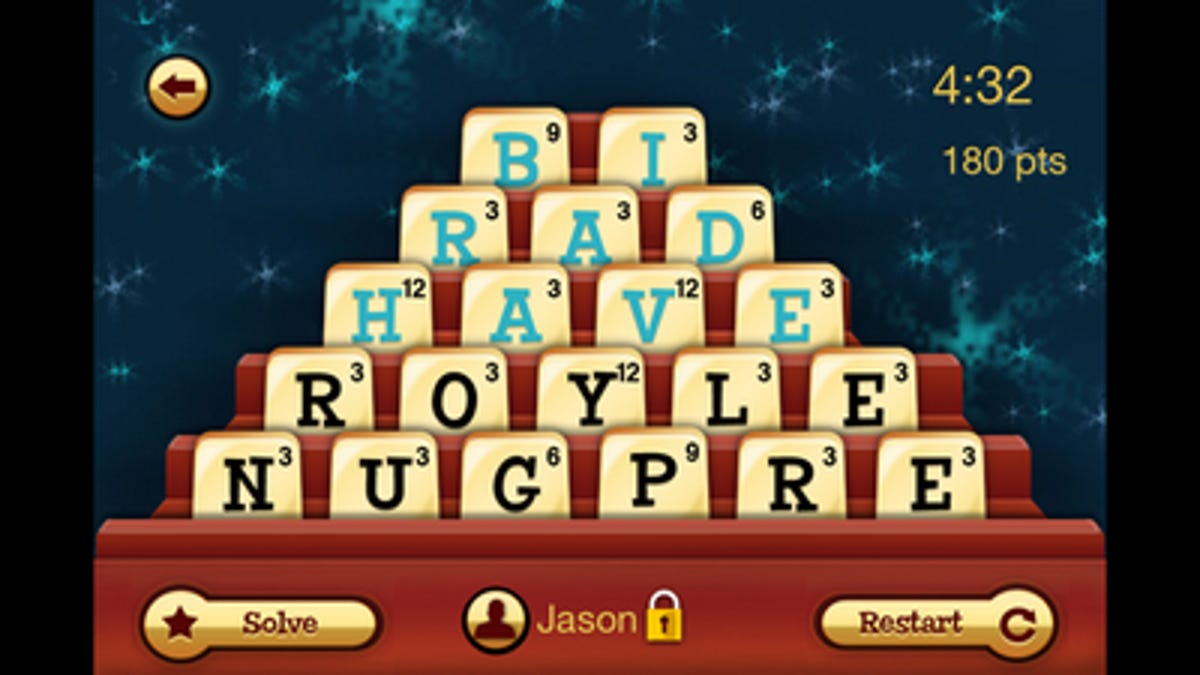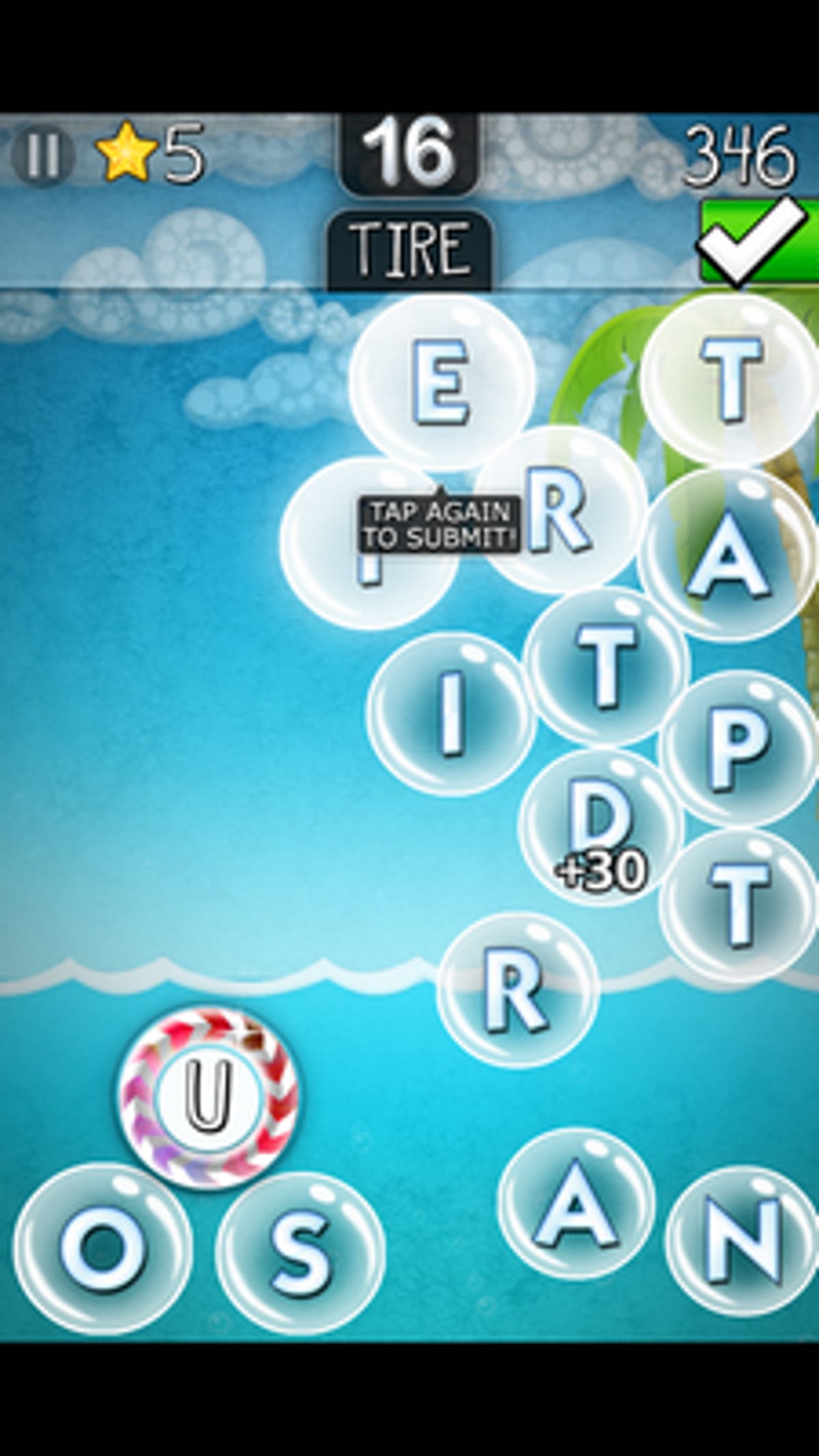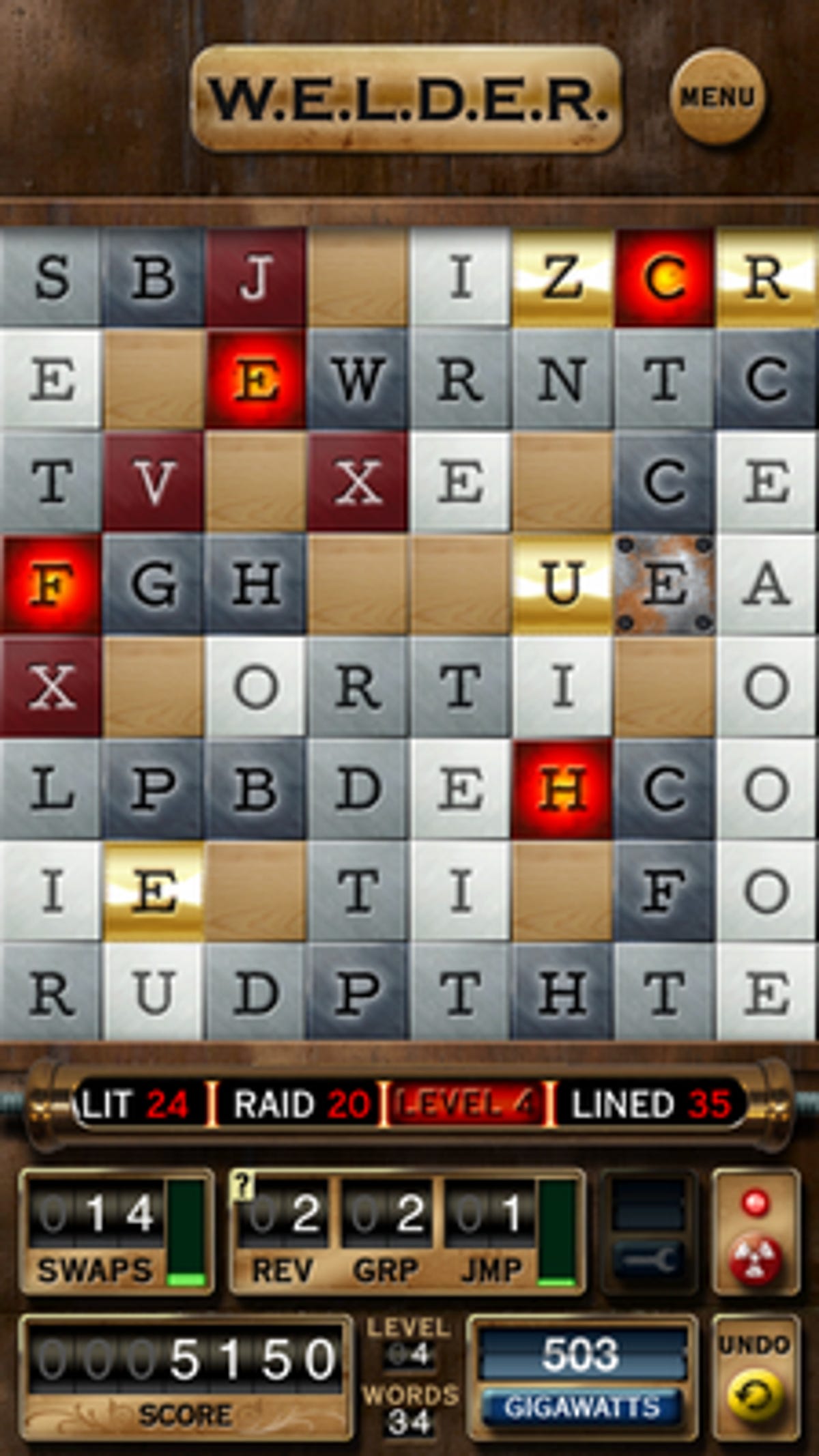Most games on my iPhone keep my interest for awhile, but then they enter a state of sitting on my home screen until I remember to revisit them. If they sit long enough, I’ll delete them knowing I can always redownload if the urge strikes me. But there is one category of games I never stop playing.
When I get a moment, I’m always catching up with word games on my iPhone. I constantly have a Scrabble (iOS|Android) game going along with both Scramble with Friends (iOS|Android) and Words with Friends (iOS|Android). When I have a little time, I’ll also play SpellTower (iOS only) as well. But what I recently realized is, with all these active word games I’m playing, I haven’t looked at what the App Store has to offer in quite some time.
This week’s apps are quality word games that you may have never played. The first gives you a set number of letters in a stack and challenges you to use every letter to win. The second has you popping bubbles that contain letters to form words. The third lets you rearrange letters on a grid to make words with unique side challenges as you play.
Note: All of the games are available for both iOS and Android, except Bubble in Paradise.


Screenshot by Jason Parker/CNET
Dabble (99 cents – iOS|Android) is a word game that challenges you to rearrange letters stacked in five rows to make five complete words. You get 20 mixed up letters and 5 minutes to form complete words on a graduated “bleacher” type of playing board.
The game immediately drew me in as I tried to find words from the available letters. The playing board has two letters at the top, then three below that, then four below that…all the way up to six letters at the bottom. You can move letters between levels or on the same level simply by touching and dragging them to swap places. When you complete a word on a row, it changes colors to show it’s an actual word, but you still have the capability to swap letters if you need them.
Where the real challenge comes is in making words out of your remaining rows of letters once you have some completed. What ends up happening is you’ll make some easy words at the top to complete those rows, then realize that you’ll need to make clever swaps to slightly change a word at the top to get a letter you can use for the bottom. It sounds confusing, but once you start playing, you’ll understand. When you complete all the rows, the game ends and tells you your score and how much time it took you to complete the board.
Dabble has Game Center support so you can check high scores and uses Facebook to let you challenge your friends. One problem I noticed when starting a multiplayer game is that the Facebook settings for Dabble don’t give you the option to opt out of posting on your behalf. This is a pet peeve of mine, but it’s more or less the same game in single player as it is multiplayer.
It’s also important to note there are no alternate game modes to keep your interest once you get bored of the gameplay.
Dabble is not terribly complex and that’s part of its charm, but it will still put your wordsmith skills to the test. If you want a challenging word game you can jump into without taking too much time, Dabble is a good choice.


Screenshot by Jason Parker/CNET
Bubble in Paradise (99 cents – iOS only) is a bit more involved than Dabble, challenging you to select letters inside of bubbles to make words, then submit a correct word to make the bubbles pop. You get a continuous stream of bubble letters from the bottom of the screen that float to the top, but if youf screen fills up completely with bubbles, you’ll get a warning sound before your game ends.
Bubble in Paradise really makes you feel the pressure, especially later in the game when your screen is filling up. To add to the tension, when you don’t use a letter, its bubble grows bigger, taking up more space on the screen. This forces you to try to use the largest bubbles in words to get some wiggle room so you can keep playing.
Beyond the basic gameplay, Bubble in Paradise has powerups that can both help or hurt you as you make words. The freeze powerup will freeze the action for a short time so you can clear some space out when you use the letter in a word. The Deflate powerup will make nearby bubbles small again. There’s also a Plus bubble that temporarily gives you higher scores for each word submitted. On the other hand, you’ll need to watch out for the Faster powerup that speeds up the letters appearing at the bottom, and the Inflate powerup that makes nearby bubbles bigger. Sometimes it’s unavoidable to use these letters in words as you’re frantically trying to make more space.
There is some help, however. An in-game hint system lets you touch a button to show you where words are in the sea of bubbles. You get a limited number of hints, so don’t use them too quickly, but you also can earn more as you play. I haven’t needed more hints, but it’s possible to buy packages of hints for real money if you find yourself stuck in a lot of games.
Bubble in Paradise has been very addictive so far and I think you’ll agree. If you want a word game that challenges your abilities under pressure, I recommend this game.


Screenshot by Jason Parker/CNET
W.E.L.D.E.R. ($2.99 – iOS|Android) has been in the App Store for awhile, but provides a different kind of tension as you try to swap letters on a grid to form words with a minimum of four letters. In this game, when you finish a word, more letters drop from top to replace them, and your job is to form words in as few letter swaps as possible.
In this game the challenge is not about how much time you have, but how many moves you have left before you’re awarded more. To form a word, you need to swap tiles until you form words either horizontally or vertically. You start off with a limited number of swaps you can make. But as you form words, a bar at the bottom fills up, and once it gets to the top, you receive more moves to keep playing.
There are a number of different tile types that you’ll need to contend with as you play. Hot molten tiles are too hot to touch, so you’ll have to swap letters around them to make a word and remove them from the board. Blank wooden tiles act as wild cards, but when you use them it uses up one of your limited supply of moves. Gold tiles give you double score for your words. As each new special tile is introduced, you can touch it to find out its properties.
There are also special moves to unlock. As you progress, you’ll earn more ways to form words. Moves called Group, Reverse, and Jump Swaps each make it easier to move groups of letters so you don’t have to waste valuable swaps. To successfully complete a game, you’ll need to go through 15 levels of 25 words each. When you move up a level, you’ll unlock new special moves and receive other bonuses that help you along. But as you go up in levels, the special tiles increase, making the game much more difficult.
W.E.L.D.E.R. has had some updates since its launch that add new game modes. Sandbox mode lets you play without a swap limit — a great way to get some practice in. Broken Challenge is particularly difficult, forcing you to play with several tiles that don’t move, which means you’ll need to move tiles around them to form words. There’s also a multiplayer component where you can challenge a friend or a random opponent.
Overall, W.E.L.D.E.R. is a very deep game with tons of variation across tile types and game modes. On the flip side, there are no quick games, so if you want a word game that’s more involved than the standard 2-minute games, this one is an excellent choice.



